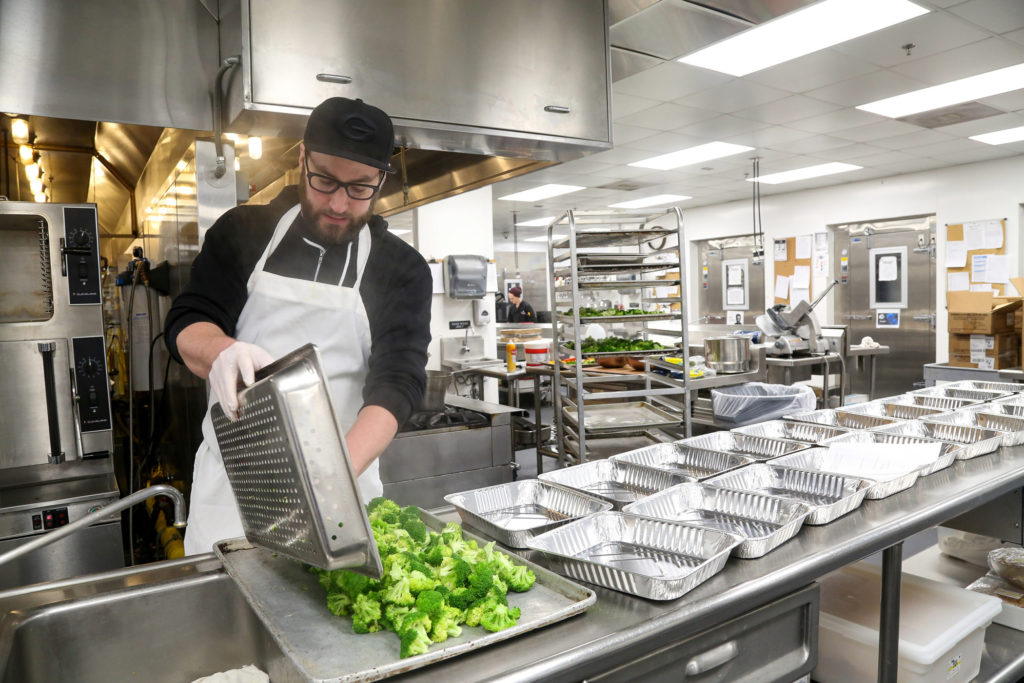As the COVID-19 pandemic continues to affect lives in ways big and small, the members of the UGA community have persisted in working together to make things better. UGA faculty, staff and students have joined efforts to provide solutions for health care workers, small business owners, families and vulnerable populations.
Here are some of the ways UGA is fighting back against the virus and offering resources to people in Georgia and beyond during this crisis.
Supporting hospitals and health care workers
While researchers like Ted Ross in UGA’s Center for Vaccines and Immunology and Biao He in the College of Veterinary Medicine work to develop a COVID-19 vaccine, the UGA community has pulled together to support those on the frontlines of the pandemic.
Since the beginning of April, UGA’s Campus Kitchen, a program within the Office of Service-Learning, has delivered weekly meals to the staff at Piedmont Athens Regional Medical Center. The College of Engineering and Office of Research have partnered to deliver hundreds of face shields to medical professionals locally. And UGA Libraries is working alongside the Entrepreneurship Program to create more protective supplies for health workers across Georgia. The College of Veterinary Medicine has also donated medical equipment to hospitals around the state.
While UGA faculty and experts are closely monitoring the effects of the pandemic through local and state trackers, students are also creating innovative solutions to face the challenges posed by COVID-19.
Assisting small business and community leaders
Small businesses have been hit hard by the effects of the pandemic. To help small-business owners stay afloat and maintain their payrolls, the Small Business Development Center, in coordination with the Office of the Governor, the Georgia Department of Economic Development and the Department of Community Affairs, has been helping small businesses navigate the application process for emergency assistance through the CARES (Coronavirus Aid, Relief, and Economic Security) Act. So far, the SBDC has provided advice and consultation to 1,430 small businesses and fielded an additional 6,000 phone calls. Nearly 9,000 people participated in the SBDC webinars during the first round of CARES funding, and 995 Georgia businesses received some federal assistance.
During a time when local government decisions are as critical as ever, UGA’s Carl Vinson Institute of Government quickly moved some of its popular education programs online. The institute, which provides professional education to managers throughout city, county and state government, has continued to adapt and provide educational services so state and local officials don’t fall behind during the pandemic.
Providing greater accessibility to services
COVID-19 testing is a priority in many communities, especially those with higher vulnerable populations. Through UGA’s partnership with Augusta University, the Athens Free Clinic is providing COVID-19 testing to individuals without health care.
UGA Libraries is offering free educational resources for K-12, college and community members, including online courses, textbooks and Galileo, their virtual library. Georgians can also engage in social-distancing yoga, printmaking classes and gallery tours through the Georgia Museum of Art.
Feeding the community
The student-run Campus Kitchen program has continued to provide deliveries to 53 older adult households in Athens even without the hundreds of students who typically assist with the program each week. A handful of employees in the Office of Service-Learning, in partnership with food service employees at the UGA Center for Continuing Education & Hotel, and with produce provided by the State Botanical Garden of Georgia and UGArden, has been able to keep up the meal service, which provides food for about 170 meals each week. The Office of Service-Learning, Center for Continuing Education & Hotel, and the State Botanical Garden are all UGA Public Service and Outreach units.
Promoting healthy living during a pandemic
Students in the College of Public Health ran a 48-hour virtual hackathon in late March aimed at collecting educational resources—in the form of infographics, videos, policy memos and more—to provide evidence-based public health information to Georgia communities.
Other faculty and students in the Franklin College of Arts and Sciences, the College of Family and Consumer Sciences and the School of Social Work have provided advice and resources for staying healthy in mind and body during this pandemic.
